The main milestones of the internal life of the USSR in the so-called the era of "stagnation"
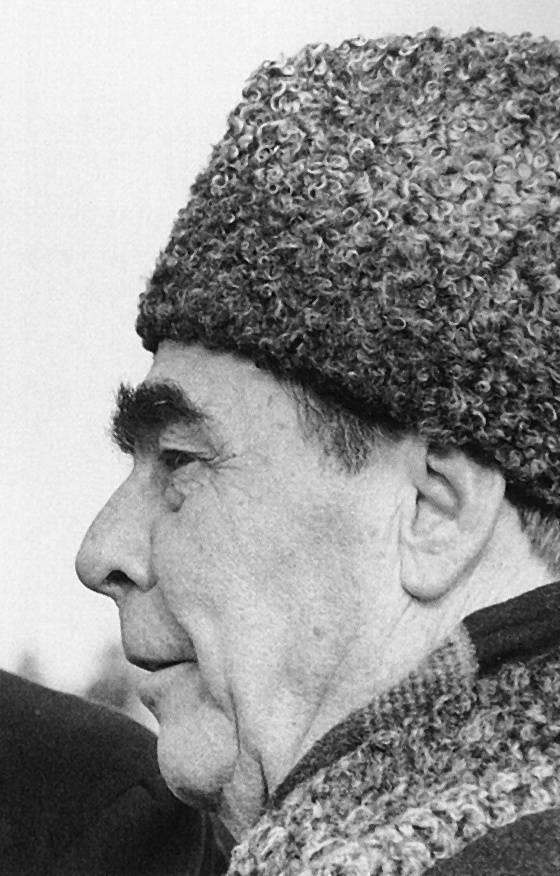
After the removal of N. Khrushchev from power, the new leadership of the USSR — Brezhnev, Suslov, Kosygin, Podgorny — had to take urgent measures to remedy the situation in the country. Party reform was abolished when industrial and agricultural party organizations were divided. They curtailed school reform - during it they tried to connect school with simultaneous work at the enterprise. Economic councils are abolished, normal branch ministries are restored. To avoid food shortages caused by the breakdown of agriculture, they continued to buy grain abroad, and some industrial goods were also purchased. Collective farmers were again allowed to have plots of land, they wrote off debts to collective farms, and “religious” repressions were frozen.
In the field of industry, not only did the ministries be restored, but, at Kosygin’s suggestion, they began to introduce “liberal” methods of work: the independence of enterprises increased, the number of planned indicators went down from above, the self-financing mechanism was introduced, now the company could send part of the profits to social, cultural, everyday needs of their workers. Introduced material incentives for workers, employees. Various experiments (of a non-global nature) were carried out to improve the organization of labor, such as a “brigade contract”.
But they failed to get closer to the pace of the development of the Stalin era - the enthusiasm of the people died down. He could no longer be raised for great accomplishments (with this guide). The last time people managed to inspire during the development of the virgin lands, there was a surge in the adoption of the slogan - “to overtake and overtake America”, when they made a promise that the current generation would live under communism. But Khrushchev disgraces, completely undermined and erased these impulses.
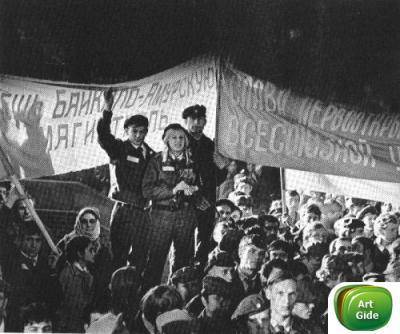 Under Brezhnev, the authorities also tried to use high-profile appeals: they proclaimed “decisive” and “determining” years, a “five-year quality”, etc. But the method did not work anymore, such statements passed on “hurray” only at meetings and congresses. The flourishing of "window dressing" began. New percussion construction projects - KamAZ, BAM, Atommash, the construction of giant oil pipelines and gas pipelines was conducted mostly not on enthusiasm and faith in a bright future. For many people, these construction projects were an opportunity to earn money, and the solemn events were in many ways ostentatious.
Under Brezhnev, the authorities also tried to use high-profile appeals: they proclaimed “decisive” and “determining” years, a “five-year quality”, etc. But the method did not work anymore, such statements passed on “hurray” only at meetings and congresses. The flourishing of "window dressing" began. New percussion construction projects - KamAZ, BAM, Atommash, the construction of giant oil pipelines and gas pipelines was conducted mostly not on enthusiasm and faith in a bright future. For many people, these construction projects were an opportunity to earn money, and the solemn events were in many ways ostentatious.In the field of education and science, the system that Stalin had laid has earned in full force. From the end of 1950 to the end of 1960, spending on science increased 12 times, and the number of researchers increased 6 times. In the Soviet Union, a quarter of all scientists of the planet worked! 5 has taught millions of students to institutions of higher education, and half a million teachers have taught them. Outstanding successes were achieved — space programs, nuclear power, and military technologies were rapidly developed to ensure complete safety of the country, discoveries were made in the exact sciences — physics, chemistry, mathematics, biology, etc. If it were possible to fully combine the achievements of scientific technical revolution with the national economy of the country, it promised fabulous, amazing prospects. The USSR could become a power of the 21 century as early as the 20 century, deliver a mortal blow to the Western world, without war, only with its achievements.
Unfortunately, for several reasons this did not happen. Some scientists turned into a bureaucracy from science, they produced reports that nobody needed. The mass of advanced developments was simply “buried”. Yes, and the management of enterprises was easier, safer to work on the already proven, reliable equipment, innovations violated a well-established production process. The industry developed mainly extensively - by building all new enterprises, and not by increasing productivity in existing plants, introducing new technologies there.
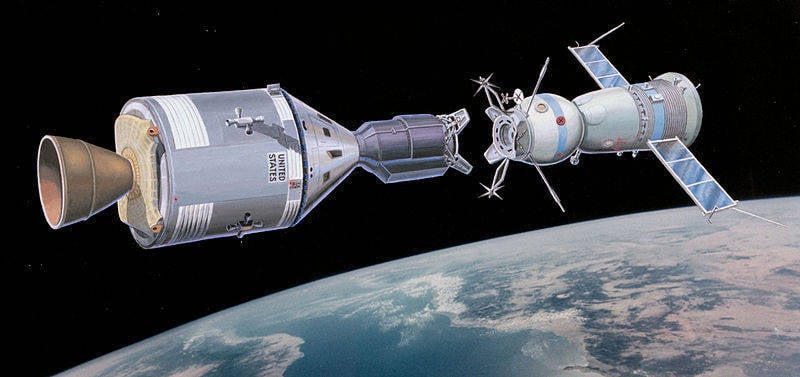
The ships "Apollo" (left) and "Union" (right). Reconstruction.
There was a growth of the bureaucratic apparatus. The intelligentsia, which according to the census 1979 of the year already constituted 19% of the population, was generally poorly (materially) provided by the group, and conditions changed for the better rather slowly, but we wanted a good life right now - people saw Italian, French films about like living in Europe, so the “kitchen opposition” grew. A significant part of the intelligentsia has become skeptical of the successes of the Soviet system. The situation of the Russian Empire was repeated, when the majority of intellectuals were enemies of the existing system.
Agriculture, and could not fully recover from the Khrushchev experiments. The “depopulation” of the countryside continued, especially in the indigenous Russian regions. The youth tried after study, or the army to settle down in the city, went to promising construction projects. If in the 1939 year of the peasants in the country there were 47-48% of the population, then already in the 1979 year - only 15%. Urbanization has caused great damage not only to agriculture, but also to Russian culture. It was the village that largely retained the indigenous Russian culture - songs, dances, Russian hand-to-hand combat skills, life skills in a single team, cooperation skills, etc.
True, it cannot be said that the state did not pay attention to agriculture. Large funds were invested in it, but they did not achieve qualitative changes, they only taught the village to live by subsidies, external support, for example, mobilized up to 20% of all adult residents of the Union to every “strada” (soldiers, students, students, workers and education, etc.).
The destruction of the village environment led to another negative trend - the growth of the Russian population plummeted. Russian village with its tradition of large families gave the main growth of our people. Urbanization has dealt a terrible demographic blow to the population of the Union. At the beginning of the 20 century, we were second only to China and India in terms of population. If not for the 20 disasters of the century, the Russian people numbered several hundred million people, and Russia still had the third largest population on the planet. And the rapid growth of the peoples of Central Asia and the Caucasus continued - their demographic niche, due to its development, was significantly expanded, for the most part they lived in rural areas, in houses, could contain large families.
In addition, a blow to the growth of the population was caused by “city diseases” - the destruction of large families (several generations), drunkenness, emancipation, careerism, the desire to live “for oneself”, the increase in the number of abortions, divorces, etc.
The leadership of the Union, mainly nominees of 1930-ies, reached solid posts in the Politburo and the government already at a solid age, and did not want any sharp turns, radical reforms. Under Brezhnev, the main dreams of the nomenclature were fulfilled - one could live in peace, enjoying the status, honor and privileges achieved. As a result, the top of the party-state apparatus turned into an almost closed caste. Social elevators began to gradually shut down, in “warm places” they tried to arrange their relatives, children of friends, and acquaintances.
Conservatism won up, everything became predictable, stable. Of course, the struggle for power was going on its own intrigue, but it went quietly, behind the scenes, without loud scandals. Thus, in the summer of 1977, Nikolai Podgorny, Chairman of the Presidium of the Supreme Soviet of the USSR, was removed from power, and 1980 was relieved of his duties as a member of the Politburo of the CPSU Central Committee and Chairman of the USSR Council of Ministers, Aleksey Kosygin. According to V.I. Varennikov, in 1979, Kosygin was the only member of the Politburo who did not support the decision to send units of the Soviet Army to Afghanistan and from that moment he had a complete break with Leonid Brezhnev and his circle. People who made mistakes, or lost in intrigues, were not sent to camps, links, were not subjected to condemnation, they were usually simply transferred to other positions, or sent to retire "for health reasons" without depriving them of rewards or privileges.
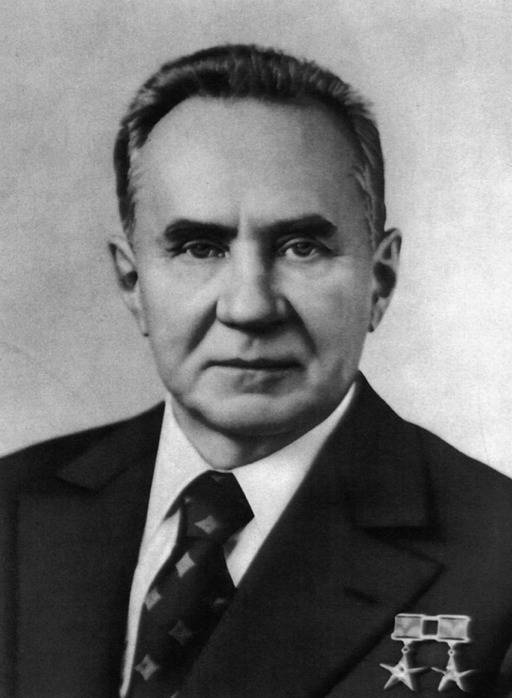
Alexey Nikolayevich Kosygin.
Party congresses became purely festive, ceremonial events: here they read long reporting reports, which were hardly interesting to anyone, announced the fulfillment of five-year plans, the following were adopted.
It was at that time that the state was assigned to the so-called. “Oil needle”, “petrodollars”, finally buried hopes for transformation, modernization of the economy. The acute need for reforming the national economy disappeared, without reforms it was calmer. The USSR was still floating by inertia.
There was a process of formation of separatism and nationalism in the Baltic States, the republics of the Caucasus, Central Asia. This was despite the fact that the outskirts had considerable support from the center, the process of creating national intelligentsia continued, there were created “special conditions” for the population, in some cases the population lived better than the regions of the RSFSR, Belarus. The center did not particularly stop these processes, turned a blind eye to them. For example, if in the RSFSR, Ukraine and Belarus for "religiosity" it was possible to lose the party membership card, and churches and monasteries continued to close, then in the Baltic States, Transcaucasia, Central Asia there were churches, sectarian prayers, mosques, Georgian and Armenian churches, they were visited and local party workers. Preserved on the outskirts and conditions, opportunities for personal enrichment - at high prices, the state sold tangerines, grapes, fruits, wool, etc. Representatives of the southern republics conducted profitable trade in Russian markets, had the opportunity to generate capital that would be useful after 1991 year.
It turned out that the policy of the party and government for different regions was not the same. It was possible for the people of the Baltic, Central Asia, the Caucasus that it was impossible for the Russians.
The Communist Party degraded, in many respects, this was due to the fact that the ideals proclaimed far differed from real life. The number increased dramatically, while in the 1952 year there were about 7 million people in the party, then by the 1980 years of the communists there were already more than 18 million people. The status of communist was devalued - membership in the CPSU became in many respects a formality, where from duties only participation in regular meetings and payment of contributions. And the benefit was direct, it was easier to go up the career ladder, the person’s authority, his status in society increased. As a result, many careerists and opportunists joined the party.
In order to explain to the people the failure of the project about “building communism in 20 years” (this was promised by Khrushchev), they came up with the concept of building “developed socialism” in the USSR. “Developed socialism,” supposedly, was a transitional stage on the road from socialism to communism. The people quite correctly considered this theory verbiage. In addition, there were problems with “developed socialism”. Therefore, explanations followed that the stage of “developed socialism” will be long and “the improvement of developed socialism” is “the main task for the foreseeable future”.
It turned out that they built and built communism, but instead it was built by developed socialism, which now had to be improved for infinite time. The last illusions about communist society, “heaven on earth,” for which enormous sacrifices were made, were scattered. And there was no attractive alternative, with the constant display of the attractive aspects of capitalism. This caused apathy, indifference, spiritual emptiness.
The authority of the supreme authority was deliberately undermined in the country - the ugly, caricature personality cult of Brezhnev was created. So, the first person was simply showered with awards: the 7 Orders of Lenin, the 5 stars of the Hero of the Soviet Union and the Hero of Socialist Labor, the Golden Star named after Karl Marx (for “exceptional contribution to the development of Marxist-Leninist theory”), the highest order of victory “Victory”, the title of Marshal of the Soviet Union, the Lenin Peace Prize and the mass of various awards from other states. Three books were written on behalf of Brezhnev - “Small Earth”, “Revival”, “Celina”, which were published in editions of more than 15 million copies. They had to be studied, for them the General Secretary received the Lenin Prize in Literature. It is clear that the aging, seriously ill Brezhnev sincerely rejoiced at the awards, he was not a villain, a dictator, a fool on a throne like Khrushchev. He wanted the country to flourish.
But, the margin of safety, established under Stalin, which withstood Khrushchev’s antics, was not eternal, it was impossible to “rest on our laurels”.
Sources of:
Vert N. History Soviet state. M., 1992.
Kara-Murza S. G. Soviet civilization: from the Great Victory to the present day (second book). M., 2001.
Khinshtein A. The Tale of Lost Time. Why Brezhnev could not become Putin. M., 2011.
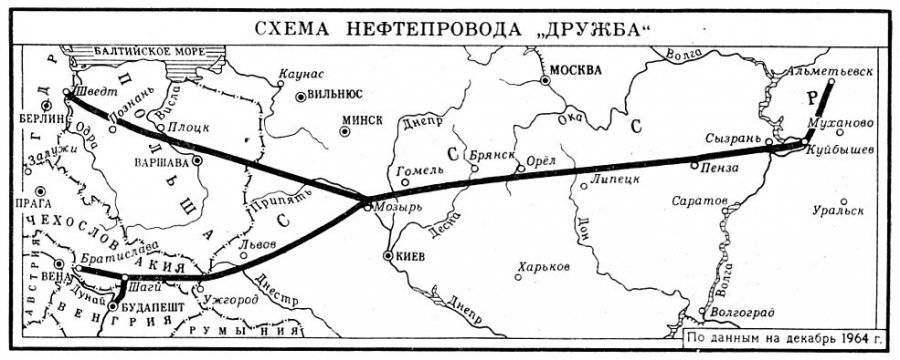
Information